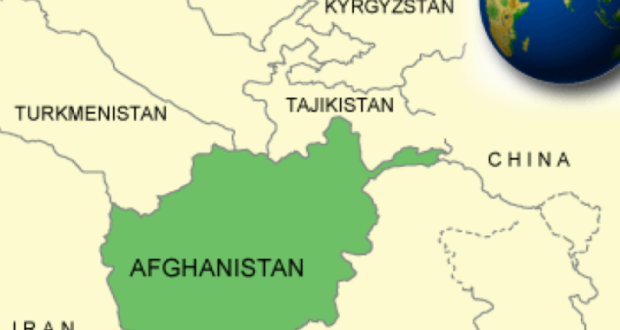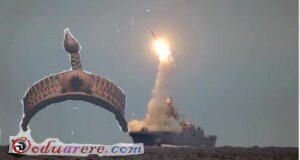by Ihsanullah Omarkhail for the Saker blog
China’s development has attracted worldwide attention in recent years. The growing economy and advances in military buildup are heatedly debated around the world and particularly in China since it opened up its door to reforms in 1978. Moreover, China has attracted billions of dollars in investment from abroad and trillions of dollars in domestic private investment. A dozen years ago, China barely had mobile communication service;.it now claims more than 300 million mobile phone subscribers, more than any other nation. China’s global stature has risen over the past 30 years and will continue to rise over the next 20 years.
Three models can reflect the peaceful rise of China: first, a warlike model of “meeting the expectation of realists approach, where precipitating of great power war could happen” in future; second, a cold war or negative model “where the expectations meet at no great power war but environment of threat and suspicion” exists; and third, and most importantly, a warm or positive model of peaceful rise, “ a friendly environment where threat is low and can be called win-win situation mainly the liberalist point of view”. However, the peaceful rise of China could also involve two simultaneous processes in which the rising power must accommodate itself to the rules and structure of International society, while at the same time other great powers accommodate some changes in those rules and structure by way of adopting a sharing of power and status.
The peaceful rise of China as a world power could also be as straightforward as the United States of America replacing former hegemon Britain without going to war during the power transition. During its own rise America was, and remains still, a highly interventionist power in relationship to Central and Latin America and in 2003 intervened militarily in Iraq. What about the case of China? China began its own peaceful rise after having adopted economic reform at home while opening its doors to western countries in the late 1970s and early 1980s. Moreover, as Zhang argues, China put its own economic development as the top priority and therefore recognized the need for stability in its International relations, both regionally and internationally.
The United state has significantly facilitated the rise of China and created a benign environment because it made China both less threatening and more attractive economically to its neighbors and to the west. But China also benefited more generally from the benign international and regional security and economic environment following the end of cold war. Put simply, China could be called the Bank of America because during the 2008 financial crisis China helped the U.S. economically. China now follows the principle of harmony based loosely on Confucian prescriptions about ‘all under one heaven’ (Tianxia) as exemplified by the “One Belt, One Road” (OBOR) project China has initiated which is entirely for peaceful purposes.
Terrorism as threat to peaceful rise
Terrorism and extremism are a burden on China’s government. Afghanistan’s location on China’s border makes it necessary for China to pay close attention to terrorist activities inside Afghanistan. The role of China in confronting terrorism is vital as both Afghanistan and China have suffered hugely from terrorism and extremism. Currently, Afghan security forces (ANSF) are fighting international terrorist forces and at the same time are on the front line against ETIM (East Turkish Islamic Movement) and other regional terror groups. Chinese help and security assistance in this regard is highly appreciated.
However, the OBOR project cannot be completed without a safe and secure Afghanistan; as long as terrorism is a regional threat, none of the peaceful projects can be easily implemented. Sunni Uyghur militant groups near the Afghan-Pak border have claimed responsibility for a small number of attacks in China, the most predominant among them the East Turkistan Islamic Movement which is based in the porous region of the Afghanistan and Pakistan border and which claimed responsibility for a destructive bombing in 2008. However, the authorities denied terrorist involvement in this attack as well as a later attack in Kashgar in July 2011 that killed three dozen people.
A number of terrorists have expressed a willingness to ideologically support the East Turkistan Islamic movement. In July 2014, Islamic state leader Abu Baker Al-Baghdadi said in a speech to rally the global causes of Muslims that “the Muslims rights are forcibly seized in China, India, and Palestine”. Also in 2013, Al-Qaeda leader Ayman Al Zawahiri endorsed the right of militants to fight the Chinese in Xinjiang. With such developments, militancy is on the rise in every part of the region and particularly in Afghanistan. A new ISIS video released on March 1 threatens the Chinese government with the active presence of ISIS in Afghanistan, an alarming situation for China and the whole region.
Conclusion
Given the ongoing insurgency in this complex region of Asia, the rise of China appears to be very difficult as it neighbors are in dire need of security cooperation with Beijing, particularly Afghanistan, a country which is hard hit by terrorism which could possibly spill over into China’s Xinjiang province. However, it is very much in China’s interest to act on security cooperation with its neighbors, and thus to extend its military and economic aid to its neighborhood, assuming Beijing is willing to take the lead in Asia to root out terrorism and extremism movements in the region.
In the last three years, Beijing has been gradually showing interest in security relations with Afghanistan, but for Kabul to acquire gunship helicopter and other heavy weaponry from Beijing with which to fight terrorism still seems problematic for western countries, and especially the U.S.
Bio: Ihsanullah Omarkhail, Ex-Consultant, Studies MA International Relations at Zhejiang University, China
He can be reached at ihsan.asif@gmail.com, he tweets on @ihsan_asif
- Barry Buzan and Michael Cox, The Chinese Journal of International Politics, Vol. 6, 2013, P 112
- Feng Yongping, ‘The Peaceful Transition of Power from the UK to the US’, Chinese Journal of International Politics, Vol. 1, No. 1 (2006), pp. 83–108. ↑
- Barry Buzan and Michael Cox, The Chinese Journal of International Politics, Vol. 6, 2013, P 114
- Tingyang Zhao, ‘Rethinking Empire from a Chinese Concept ‘‘All-Under-Heaven’’ (Tian-xia)’, Social Identities, Vol. 12, No. 1 (2006), pp. 29–41.
- Ahmad Bilal Khalil,’ The Rise of China-Afghanistan Security Relations, June 23, 2016 http://thediplomat.com/2016/06/the-rise-of-China-afghanistan-security-relations/ ,
- Tania Branigan,” China plays down terror link as bus explodes”, July 28, 2008, https://www.theguardian.com/world/2008/jul/28/China1
- South China morning post,” Al-Qaeda leader Ayman al-Zawahiri sets out his first jihad guidelines”, September 18, 2013, http://www.scmp.com/news/world/article/1311795/al-qaeda-leader-ayman-al-zawahiri-sets-out-his-first-jihad-guidelines
- Aljazeera,’ ISIL video threatens China with ‘rivers of bloodshed’, March 1,2017, http://www.aljazeera.com/news/2017/03/isil-video-threatens-China-rivers-bloodshed-170301103927503.html
 Ọmọ Oòduà Naija Gist | News From Nigeria | Entertainment gist Nigeria|Networking|News.. Visit for Nigeria breaking news , Nigerian Movies , Naija music , Jobs In Nigeria , Naija News , Nollywood, Gist and more
Ọmọ Oòduà Naija Gist | News From Nigeria | Entertainment gist Nigeria|Networking|News.. Visit for Nigeria breaking news , Nigerian Movies , Naija music , Jobs In Nigeria , Naija News , Nollywood, Gist and more







